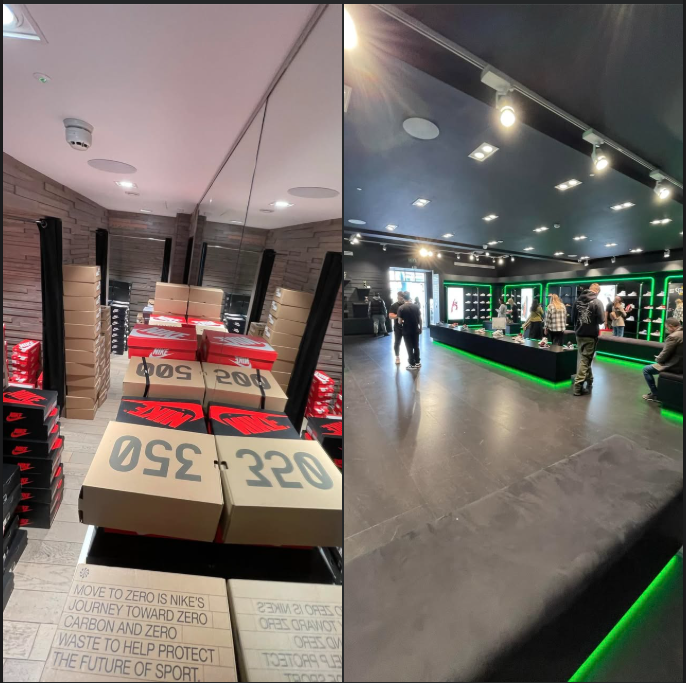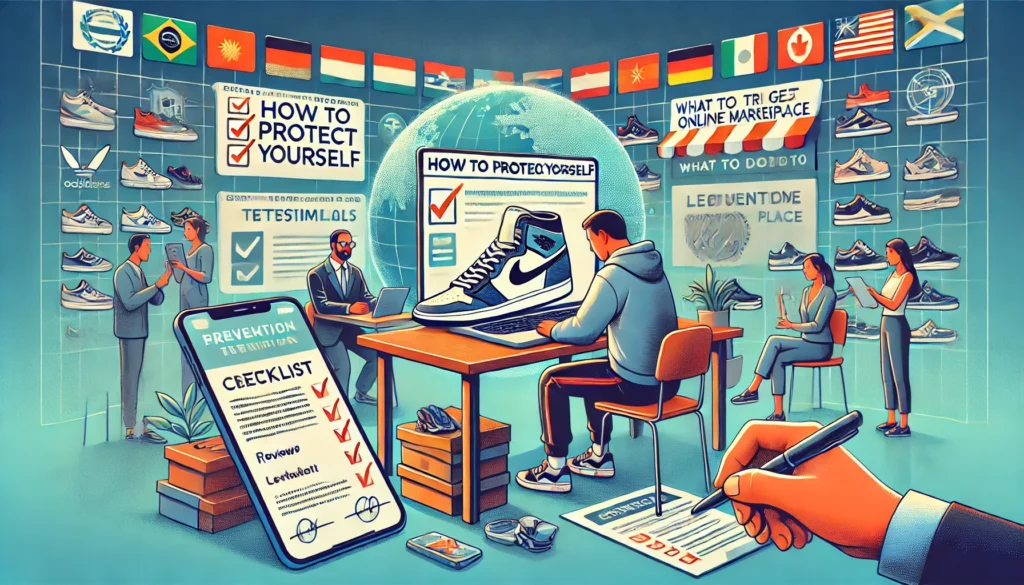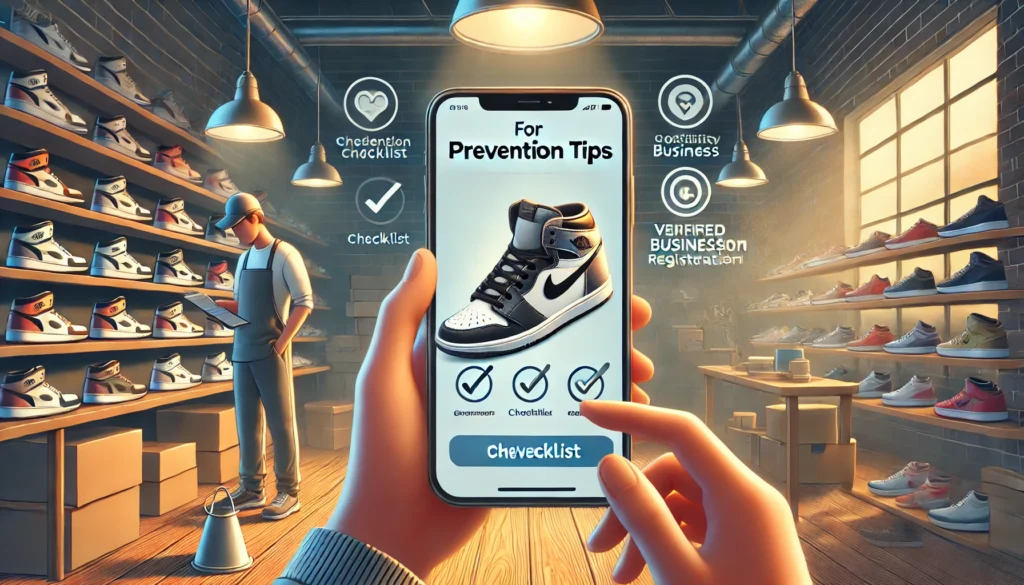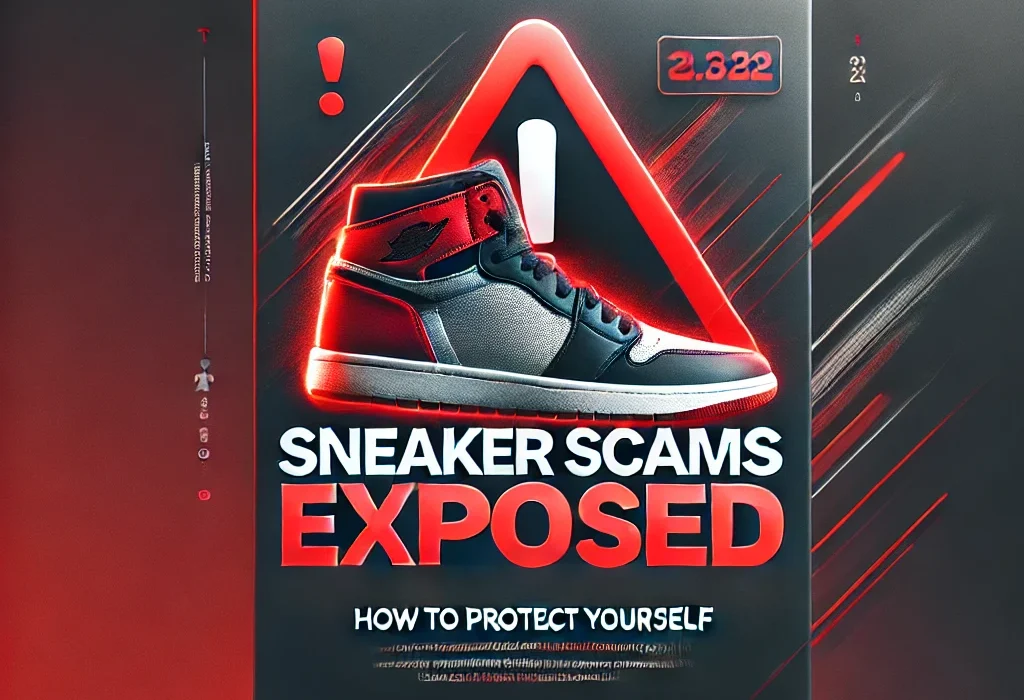The sneaker community is filled with passion, creativity, and a love for rare kicks.
But alongside the excitement comes a darker side – scams that prey on sneakerheads’ trust and enthusiasm.
In this article, we’ll share a real-life story, uncover common scam tactics, and provide practical advice to keep your prized sneakers safe.
Joe’s Story: A Cautionary Tale

In 2022, Joe entrusted a company called OP2.0, run by Ilan Spinosa and Christian Reyes Vargas, to sell his sneakers through a pop-up store in Bicester Village, UK.
Having had a reliable payment history, Joe allowed them to take his stock back to France when the pop-up ended.
But once they left, communication stopped, and payments ceased. After pursuing legal action in French courts, Joe won both criminal and commercial cases in late 2023.
Despite freezing their bank accounts, Joe has yet to recover the £50,000 owed to him. He believes the directors have relocated to Dubai, making the recovery process even more challenging.
How Sneaker Scams Work
Scams in the sneaker world often follow a similar playbook. Here are some common tactics:
- Fake Consignment Deals: Businesses or individuals offer to sell your sneakers on consignment but disappear with your stock or fail to pay you after sales.
- Pop-Up Stores: Temporary shops that gain your trust, then vanish, leaving no trace.
- Unclear Contracts: Agreements with vague terms, making it hard to hold anyone accountable.
Joe’s experience highlights the importance of vigilance and preparation when dealing with consignment stores and sellers.
1. How to Protect Yourself

- Research Thoroughly
- Look for reviews and testimonials.
- Check if the business has a history of complaints or legal issues.
- Insist on Clear Contracts
- Ensure terms are detailed, including payment schedules and ownership rights.
- If possible, consult a lawyer before signing anything.
- Beware of Red Flags
- Poor communication or evasiveness.
- Promises that seem too good to be true.
- Use Trusted Platforms
- Stick to reputable consignment shops or online marketplaces with buyer protection policies.
- Document Everything
- Keep records of communications, contracts, and receipts. These can be invaluable if legal action becomes necessary.
2. What to Do If You Get Scammed

Joe’s persistence in seeking justice offers valuable lessons:
- Pursue Legal Action: File claims in the appropriate jurisdiction. Winning a court case can give you leverage, even if recovery takes time.
- Consider Debt Recovery Agencies: Look for global specialists who operate on a “no recovery, no fee” basis.
- Leverage Social Media: Publicly sharing your story can pressure scammers and help warn others.
- Seek Local Advice: If the scammers are overseas, consult legal experts familiar with that country’s laws. For example, debt in Dubai is treated as a serious offence.
3. Prevention Tips

- Start Small: Test new consignment stores with fewer items before committing large amounts of stock.
- Verify Business Details: Ensure the company is registered and has a legitimate address and contact information.
- Stay Updated: Join sneaker Facebook Groups and communities to stay informed about trustworthy businesses and known scams.
Your Community, Your Protection
The sneaker community thrives on trust and mutual respect. By sharing stories like Joe’s and staying vigilant, we can protect ourselves and each other from scams.
If you’ve been scammed or have advice to share, we want to hear from you. Together, we can build a safer, stronger sneaker community.
Have you ever experienced a sneaker scam? Share your story in the comments or reach out to us so we can write about it. Let’s expose the scammers and keep the sneaker culture thriving!
Loved this article ? Don’t miss our awesome trainer reviews and videos! Follow us on Instagram, Pinterest or liking our Facebook Page today.






